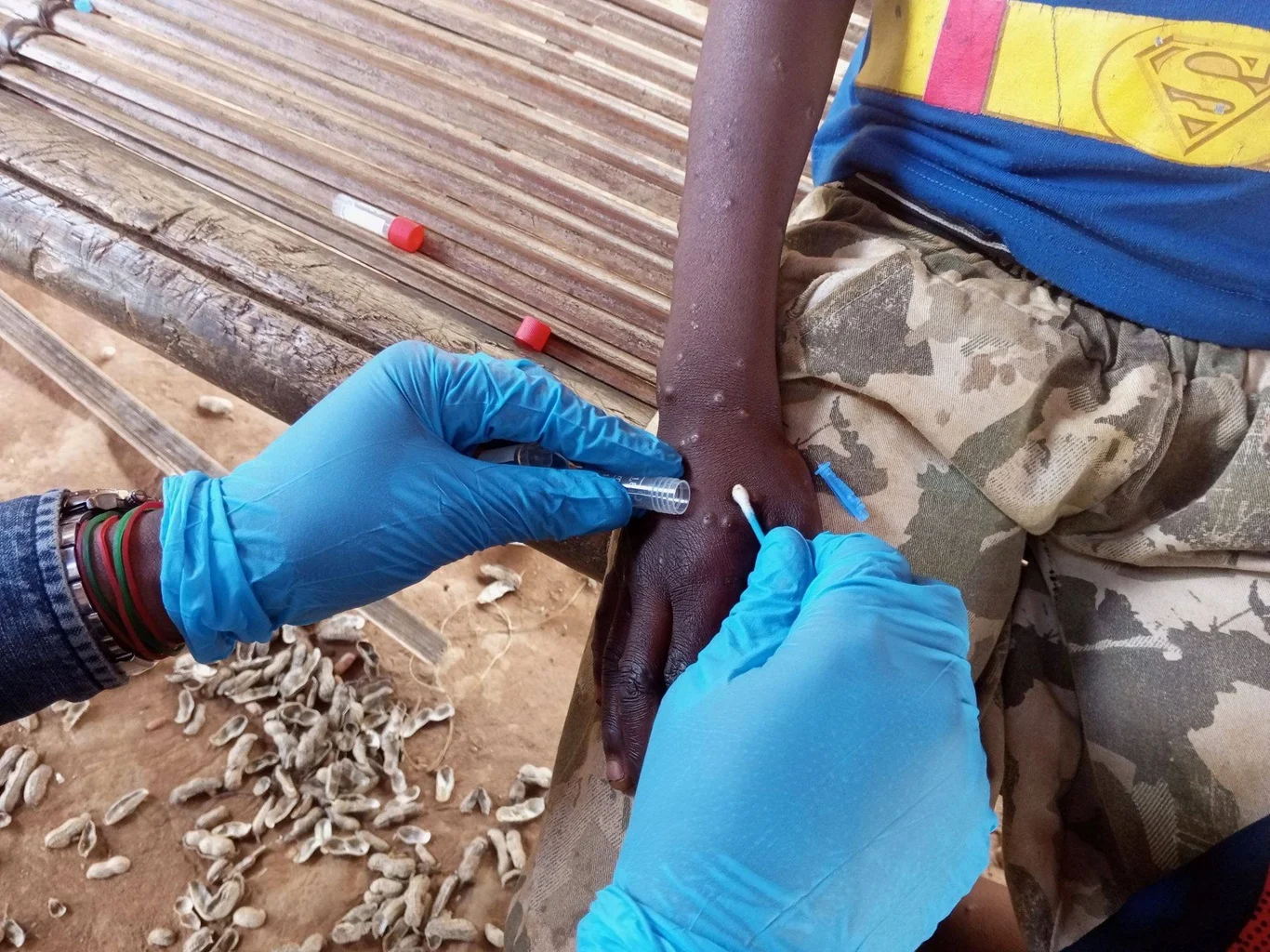By Mercy Kachenge
Nairobi, Kenya: After the uneventful index case in Kenya, the Ministry of Health (MoH) offers an update on the status of monkeypox (mpox) cases in the country. Both continental and global health declarations emphasize the urgent need for a coordinated international response to contain the mpox outbreak due to its significant public health threat.
According to the Africa Centre for Disease Control and Prevention (AfricaCDC), the Mpox outbreak has been elevated to a Public Health Emergency of Continental Concern (PHECC). This decision follows the World Health Organization’s (WHO) declaration of the outbreak as a Public Health Emergency of International Concern (PHEIC).
According to the Ministry of Health, Kenya has only reported one case of an individual with Mpox who traveled from Kampala to Mombasa and then to Rwanda via Tanzania through Taita Taveta, a one-stop border point that has already made a full recovery.
The Ministry has already screened 12 persons who came into contact with the index case and 6 different suspected cases of whom they have tested negative for the disease.

According to Dr. Deborah Barasa. Cabinet Secretary for Health, the Ministry has enhanced heightened surveillance activities across the country to detect all suspected cases of Mpox, coordination with health authorities through activating the Public Health Emergency Operation Centers, and established the Incident Management Teams to curb the disease.
Additionally, the MoH continues to issue advisories to healthcare workers to sensitize them to Mpox by guiding the identification of cases and infection prevention control measures. Also, efforts have been made to sensitize the public through engaging with communities on risk perception and prevention measures to combat the disease.
The CS emphasized the importance of ongoing vigilance and adherence to health guidelines to prevent the spread of Mpox through adhering to preventive measures such as regular hand washing with either soap and water or using alcohol-based sanitizer and also through avoiding contact with individuals who show symptoms of Mpox.
She added that the disease presents with signs and symptoms such as skin rash, sore throat, fever, headache, muscle aches, back pain, low energy, and swollen lymph glands which lasts for 2 to 4 weeks.
The CS urged if one experiences the signs and symptoms to inform anyone whom they have come in close contact with within the last 21 days to report to the nearest health facility to provide the information and also to cover lesions and wear a well-fitting mask when around other people.
According to the Ministry of Health, Kenya has only reported one case of an individual with Mpox who traveled from Kampala, to Mombasa and then to Rwanda via Tanzania through Taita Taveta, a one stop border point that has already made a full recovery.
The Ministry has already screened 12 persons who came into contact with the index case and 6 different suspected cases of whom they have tested negative for the disease.
According to Dr. Deborah Barasa. Cabinet Secretary for Health, the Ministry has enhanced heightened surveillance activities across the country to detect all suspected cases of Mpox, coordination with health authorities through activating the Public Health Emergency Operation Centers and establishing Incident Management Teams to curb the disease.
Additionally, the MoH continues to issue advisories to healthcare workers to sensitize them to Mpox by guiding the identification of cases and infection prevention control measures. Also, efforts have been made to sensitize the public through engaging with communities on risk perception and prevention measures to combat the disease.
The CS emphasized the importance of ongoing vigilance and adherence to health guidelines to prevent the spread of Mpox through adhering to preventive measures such as regular hand washing with either soap and water or using alcohol-based sanitizer and also through avoiding contact with individuals who show symptoms of Mpox.














